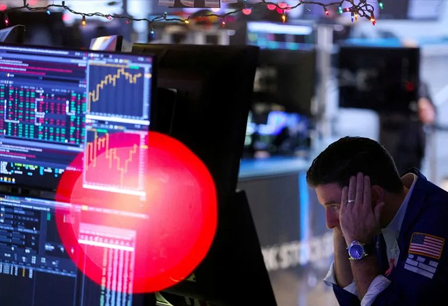With the U.S. economy showing some signs of stalling, talk of a recession is heating up.
But it’s not just average Americans who are fretting about what that might mean for their finances. Even those with at least seven figures in their bank accounts are concerned, according to CNBC’s Millionaire Survey.
The group surveyed — millionaires own roughly 90% of individually held stocks in the U.S. — said they see inflation as the number-one risk to both the economy and their personal wealth.
So what are they doing about it? Here’s more on how some of the country’s wealthiest individuals are preparing for a potential recession this year and how you can use the same strategies to weather tough times.
Don’t miss
Mitt Romney says a billionaire tax will trigger demand for these two physical assets — get in now before the super-rich swarm
Stocks are down, but “cash is not a safe investment,” says Ray Dalio — get creative to find strong returns
Warren Buffett likes these 2 investment opportunities outside of the stock market
1. Mostly nothing — for now
Sometimes the hardest thing to do is nothing. But when the market bottoms out, knee-jerk reactions like immediately selling off investments are often the worst thing you can do.
Instead, wait until the market finds its own balance again before you rebalance your portfolio.
As CNBC’s wealth editor Robert Frank noted in a segment on “The Exchange,” that’s exactly what the millionaires are opting to do.
“Back in March of 2020, they were the first to come in to see opportunities to buy… we are not seeing signs in this survey that they right now see that opportunity to buy — at least not yet,” Frank said.
2. Mixing it up when necessary
While most people should hold tight for a bit, some investors — especially those who focus heavily on growth stocks — may want to consider switching up their investment mix.
Nearly 40% of the millionaires surveyed told CNBC they plan to or have already made changes to their portfolio due to inflation. About one-third say they’ve dumped equities thanks to inflation’s effects on certain sectors and stocks.
Where are they investing instead? A solid 41% are adding more fixed-rate investments, like government and corporate bonds, which are traditionally lower risk.
3. Keeping cash handy
As we said, you don’t really want to be selling when the market is tanking. Pulling money out of your portfolio for an emergency or for retirement funds locks in those losses.
If it’s possible, set aside more money in cash — as 44% of the millionaires say they’re doing these days. Homeowners can lean on the equity in their homes through a home equity line of credit (HELOC), but keep in mind that rising interest rates means these variable rate loans cost borrowers more these days.
For most people, the best option will be a high-interest savings account where your cash can be handy but will also continue to grow on its own. Retirees should also lean on Roth IRAs if they have no other choices since withdrawals aren’t taxed.












